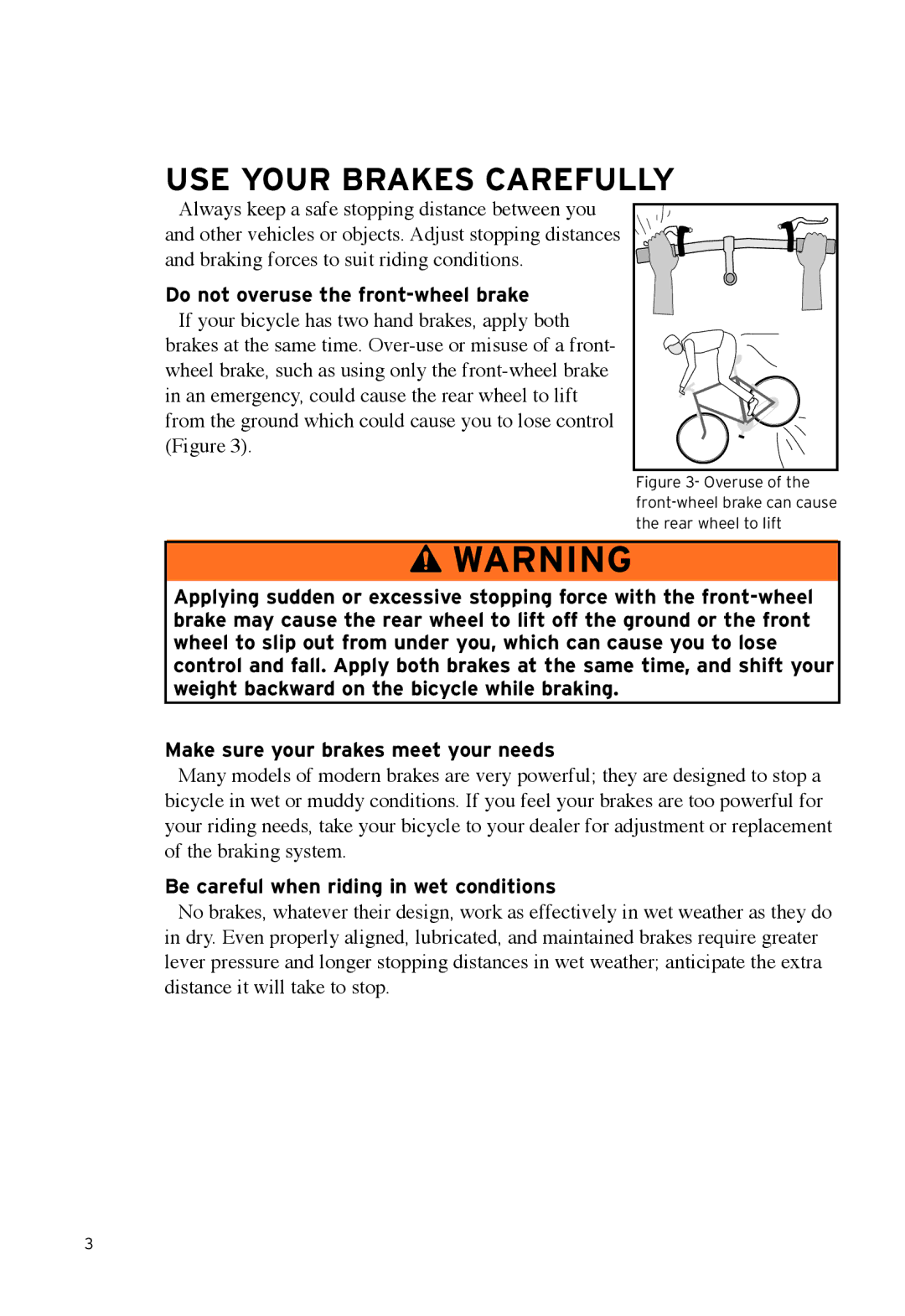
Use your brakes carefully
Always keep a safe stopping distance between you
and other vehicles or objects. Adjust stopping distances and braking forces to suit riding conditions.
Do not overuse the front-wheel brake
If your bicycle has two hand brakes, apply both brakes at the same time.
Figure 3- Overuse of the front-wheel brake can cause the rear wheel to lift
![]() WARNING
WARNING
Applying sudden or excessive stopping force with the
Make sure your brakes meet your needs
Many models of modern brakes are very powerful; they are designed to stop a bicycle in wet or muddy conditions. If you feel your brakes are too powerful for your riding needs, take your bicycle to your dealer for adjustment or replacement of the braking system.
Be careful when riding in wet conditions
No brakes, whatever their design, work as effectively in wet weather as they do in dry. Even properly aligned, lubricated, and maintained brakes require greater lever pressure and longer stopping distances in wet weather; anticipate the extra distance it will take to stop.
